Open on Evenings & Holidays! Extended And Flexible Hours!
* DNA Testing for Immigration
* Paternity Testing
* Deceased Paternity
* Forensic Testing & Much More!
Open on Evenings & Holidays! Extended And Flexible Hours!
* DNA Testing for Immigration
* Paternity Testing
* Deceased Paternity
* Forensic Testing & Much More!
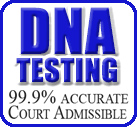
AB DNA Testing Services
Phone: 718-701-0292
We offer New York’s BEST AND MOST AFFORDABLE DNA TESTING with a full range of services to verify family relationships.
We specialize in the following types of DNA tests:
• Paternity • Maternity • Grand-parenting • Sibling Relationship • Biological Relationship Studies • Twin Studies • Deceased Paternity • Forensic Testing • Child Identity Testing • Family Tree and Genealogy Testing
* EVEN LOWER PRICE THAN HOME DNA KITS.
* NO HIDDEN COSTS – Collection kits, photography, and fingerprinting all included.
* 99.9% (OR GREATER) ACCURACY.
* FINAL RESULTS ARE PRESENTED IN A NOTARIZED DOCUMENT IN A CLEAR AND CONCISE FORM.
* ALL RESULTS ARE COURT ADMISSIBLE.
* OVER 15 YEARS EXPERIENCE.
* NO REFERRALS NECESSARY!
* FAST AND PAINLESS SAMPLE COLLECTIONS, USING BUCCAL (Mouth) SWABS.
* SPANISH, PORTUGUESE, FRENCH AND CREOLE SPOKEN.
* PLEASE SEE TRANSLATIONS OF OUR SERVICES IN: SPANISH, BENGALI, URDU, CHINESE AND NEPALESE!
Located In Woodside Queens, easily reachable from all boroughs (Queens, Manhattan, Brooklyn, Bronx and Staten Island), Westchester, Nassau and Suffolk.
We can also schedule DNA tests at our network of collection sites throughout New York city.
Call us. We have found that in many cases, our personalized service can overturn your denial. We will call the passport office or immigration dept. for you and plead your case over phone verbally.
90% of time they will revoke your denial, as long as you get the required information to them quickly.
AB DNA TESTING SERVICES
AB DNA Testing Services © |
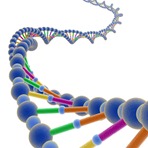 |
718-701-0292 We are open on evenings & holidays! |
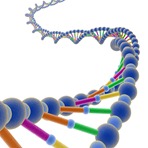 |
Legal Paternity Test: $349
NYS compliant testing only. NO HIDDEN COSTS OR EXTRA FEES.
We do not provide prenatal DNA testing in-house. If you need prenatal testing, we can refer you to a provider we’ve worked with previously:
Prenatal DNA Testing NYC.
AB DNA Testing Services offers a broad range of DNA testing options using certified, accredited laboratories and verified collection procedures.
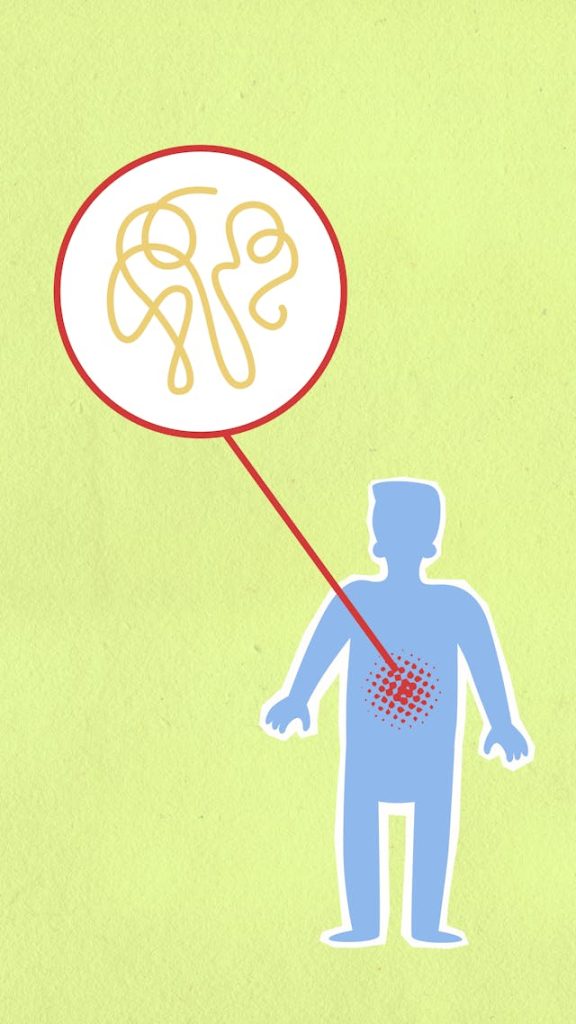 What are the compelling reasons why you might consider genetic testing and how it can benefit you? Genetic testing represents a frontier in modern medicine and personal health, offering an unprecedented glimpse into the very building blocks of who we are: our DNA. The decision to delve into your genetic code can be driven by various factors, each shedding light on different facets of your genetics.
What are the compelling reasons why you might consider genetic testing and how it can benefit you? Genetic testing represents a frontier in modern medicine and personal health, offering an unprecedented glimpse into the very building blocks of who we are: our DNA. The decision to delve into your genetic code can be driven by various factors, each shedding light on different facets of your genetics.
One of the most impactful reasons to pursue genetic testing is the opportunity for preventive healthcare. Tests can reveal your predisposition to certain health conditions, such as heart disease, diabetes, and various forms of cancer. This knowledge is not a sentence but a proactive tool, empowering you with the foresight to take preventative steps and inform your healthcare provider about personalized screening schedules.
Ever wonder why certain medications work better for you than others? Pharmacogenomic tests analyze how your genes affect your response to medications, which can help your doctor tailor drug prescriptions specifically for you, maximizing efficacy while minimizing side effects.
Beyond health, genetic testing is a window into your ancestral past. It can uncover the ethnic tapestry that makes up your DNA, linking you to distant relatives and regions across the globe. For many, it’s a path to understanding their identity and the historical narratives that have woven their family’s story.
For couples considering starting a family, carrier screening is invaluable. These tests can determine whether you or your partner carry genes for inherited disorders, such as cystic fibrosis or sickle cell anemia, which could be passed on to your children.
Genetic testing can bridge gaps in family trees, helping adoptees find their biological parents or siblings and reconnecting estranged families. This aspect of genetic testing often unfolds into heartfelt stories of reunification and new familial bonds.
On a lighter note, these tests can also explain certain benign traits – why you have a penchant for bitterness, the source of your red hair, or why the sun makes you sneeze. These quirky insights can be delightful revelations about your unique genetic makeup.
In legal contexts, DNA testing can provide evidence in paternity cases, ensuring the correct individuals are held responsible for child support or have the rights to custody. In forensic science, DNA profiling aids in solving crimes and closing cold cases.
When you decide to undergo genetic testing, consider privacy policies and consent. Ensure you are comfortable with how your data will be stored, used, and shared.
The results of genetic testing can be emotional, revealing unexpected truths about health and family. It’s important to prepare for the outcomes and have support systems in place.
If these reasons have piqued your interest in genetic testing, AB DNA Testing Services in Queens is your trusted local provider. We offer comprehensive DNA testing services that respect your privacy and provide accurate, actionable insights.
Start your journey of genetic discovery with us and gain invaluable insights into your health, ancestry, and more:
AB DNA Testing Services
63-11 Queens Boulevard
Woodside NY 11377
Phone: 718-701-0292
Explore the depths of your DNA and let the secrets encoded in your genes guide you toward a healthier, more informed future. Contact us today to schedule your genetic testing.
Genealogy is a field of study to learn a person’s family history. Genealogy testing refers to DNA testing that involves using genetic DNA information to determine the lineage and pedigree of a person. Also known as genetic ancestry testing, genealogy testing includes examining and evaluating a person’s DNA variations to find clues that link them back to their ancestors.
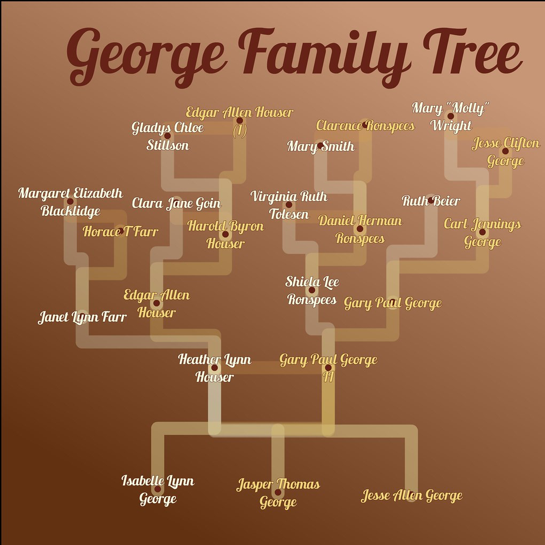
(Source)
Genealogy tells a person about their lineage and ancestors and helps to find distant relations that might be somewhere in another part of the world like 3rd, 4th, and 5th cousins. Besides that, people with the same backgrounds can also share various genetic variation patterns.
Genealogical testing is a DNA-based testing method. It focuses on the particular location of a genome in a person. This is because it helps in discovering and proving the ancestral relationships of a person. While all this information may sound complex to comprehend and memorize, the actual studies and scientific data are way more complicated than this.
Genealogical testing also allows experts to locate a person’s genome to determine their mix of ethnicities. Since old races and ethnicities populated different regions, migrated, and varied greatly, the estimates are merely a close assumption based on the present data.
Moreover, companies that perform ethnicity testing use different testing techniques and methods, which can cause relative variations in the test results. For genealogical testing, there are three fundamental forms of genealogical studies.
Autosomal DNA testing yields multiple DNA matches of both females and males, considering they hired the same company for testing. Every match may depict a distant relation of some kind, including close family matches or cousins of the 1st, 2nd, 3rd degree, or more. Usually, experts regard the 6th cousin or further the most distant relationship degree. Nonetheless, making precise conclusions over close relations of individuals with each other is not so easy.
You have to realize the random nature of the tests, which suggest that any person can inherit any type and amount of DNA from their ancestors (common lineage). However, genealogical research and family-tree sharing help experts interpret the results of those test subjects whose DNAs match as close or slightly distant relations. Overall, the use of autosomal tests is to determine the ethnic mix of a person.
Y-chromosome DNA testing can help find your lineage directly into the male line. Since y-chromosomes pass down from grandfather and father to son, there are significant variations as well. Moreover, this type of DNA testing method in genealogy only pertains to males as females do not have the y-chromosome.
Still, if a female is curious about their y-chromosome test results, they may recruit a close male relative such as a brother to take the test. What’s rather interesting is that y-chromosomes transfer from generation to generation, similar to the surnames. Hence, it can be quite helpful in learning whether two families with the same surname have an ancestral relationship.
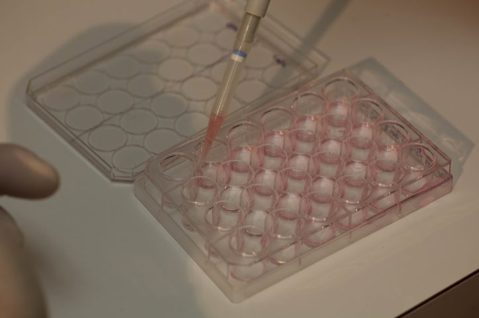
(Source)
Single Nucleotide Polymorphism (SNP or SNPs) involves evaluating nearly all the genetic variations that are present in a person’s genome. Experts compare the follow-up test results with others who have already taken the tests to estimate their ethnic background. While this complex and highly time-taking DNA-based testing can be intricate, it can give you a fair idea of your ancestral background and what ethnicity mix you are.
For instance, SNPs are effective because they determine a person’s overall ethnic (ancestral) background. You might learn that a person is 60% African, 10% Asian, and 30% European. While this still doesn’t clear an individual’s ancestral line, it gives an idea of the ethnic mix compared to the mitochondrial and y-chromosome DNA test results.
Both genders have mitochondria DNA which is somewhat the own DNA of the mitochondria other than that which is present in the center (nucleus) of the cells. While both genders have it, the mitochondrial DNA passes down only from the mother, so you might be able to determine your maternal line. It helps learn your lineage through the female ancestral line because of the female ancestors records that are near negligible in the form of documentation.
Are you in the search to find your ancestral line and lineage? Genealogical DNA testing can help you learn about your distant relationships in different ethnicities and your ancestral background. If you want to get the best DNA testing services, you should contact AB DNA Testing.
We not only offer a range of DNA testing services but also provide personalized and individualized care to every patient. With the highest accuracy, we deliver reliable test results for legal or personal issues. Give us a call at 718-701-0292 to schedule an appointment at our testing facilities today. Visit us at 63-11 Queens Blvd. Woodside, NY 11377.
Reference Links:
https://www.britannica.com/topic/genealogy
https://researchguides.plattsburgh.edu/genealogy
https://en.wikipedia.org/wiki/Genealogy
https://www.sciencedirect.com/topics/medicine-and-dentistry/genealogy
How does DNA work? DNA is the most common biological molecule that we can find in a living form on our planet. But many people don’t quite understand deoxyribonucleic acid or, as we know in common terms, DNA. In this article, we will help you understand what DNA is and how it works. DNA is present in every cell in our body. WE can consider DNA as a genetic code that is responsible for making you. DNA contains all the information about your growth, development, functioning, and reproduction.
The reason why you are different from other people is that your genetic code is unique and different. For instance, people differ in eye color, height, etc. DNA is also the reason why birds have only two wings and why all giraffes have long necks. The amazing thing is that if you unravel the entire DNA in your body, it can reach the sun and come back 300 times. This article will help you understand everything you need to know about DNA:
The short definition of DNA is that it is a long molecule and contains a unique genetic code for each individual. DNA also includes instructions about building various important proteins for various functions of our body. The information that is present in the DNA passes from parents to their offspring. Roughly half of the child’s DNA originates from the mother and half from the father.
DNA performs the genetic information or instructions about reproduction, growth, and other function of a living being. DNA testing is a process for identifying the DNA sequence and the changes it makes. The variations in genes are responsible for developing the risk of many health conditions.
With DNA or genetic testing, you can find the possible health conditions that you may develop. This will help in identifying conditions early and making changes to your lifestyle accordingly. Various advanced techniques and technologies are available to perform the DNA test with high accuracy and fast procedures. These include sequencing and genotyping. With the help of your DNA, you can find complete information about your fitness, nutrition, and health.
There are two steps that genes require for creating protein.
After copying the DNA, a messenger RNA or mRNA comes into being. RNA is an exact copy of a DNA but only contains a single strand. Furthermore, RNA does not include thymine (T), which is a base. Instead, RNA has uracil (U).
With the help of transfer RNA or tRNA, genetic engineers decode the mRNA into amino acid. mRNA contains codons. These codons work as a building block of protein.
Twenty amino acids make up a protein.
Genes also instruct your cells on what functions they should perform and when. For instance, they tell cells to carry nerve cells, make bones, be a muscle, and much more. You may be wondering how genes can perform all these activities. They do so by making proteins. Every gene in the body is just a recipe for creating various types of proteins.
Now you may be wondering, why do I need proteins? Well, proteins make up a large part of our body. Around 50% of the dry weight that a cell contains is protein in one form or another. Other than that, protein also performs all the heavy functions of the body. These functions include communication between cells, immunity, circulation, digestion, and motion. These functions are possible through one protein from an estimate of 100,000 that your body manufactures.
However, the genes of your DNA are not directly responsible for manufacturing proteins. Instead, some special proteins are enzymes that read, transcribe, and copy the DNA code. An enzyme that utilizes the DNA as a template for building a single-stranded RNA molecule will unzip the DNA segment that needs transcribing.
Every protein element in your body contains building blocks known as amino acids. Proteins require at least 20 types of amino acids to form. However, you will find only four types of nucleotides in the RNA and DNA. Imagine how a four-letter code can define 20 different types of amino acids.
The DNA code’s construction is, in a way that allows reading in triplets. Every word of the code has three letters. This word is called a codon. At the beginning and the ending, there is a unique starting and stopping codon. Every living being is using the same method or code for making protein.
With the help of DNA testing, you can find out everything about your physical appearance, health conditions, ethnicity, and family tree. Furthermore, you can also find out the diseases that you are at risk of developing.
If you want to take a DNA test from a laboratory accredited by AABB, you can call us at 718-701-0292 or visit our website.
Genealogy testing is a DNA test that traces a person’s genome. It finds out about a person’s ancestral relationship or estimates their ethnic mixture. Sometimes, ethnic test varies dramatically in different test because various companies have different methods of test. Ethnic test results are often not accurate because it detects your relation with different parts of the world like Africa, Asia, Europe, Native America, Jewish ancestor, and others.
There are three types of genealogy DNA tests; each plays a different role in locating your genome. They are Y-DNA, autosomal, and mitochondrial (mtDNA) tests. Y-DNA and mitochondrial tests are controversial because of their limited analyzes. But these entire tests are commonly used to determine your ancestors.
Genealogical DNA tests have the same procedure as other DNA testing methods. The procedure starts by collecting a sample of DNA. DNA sample collection requires one of these methods: buccal swab, mouthwash, chewing gum, and spit-cups. The buccal swab method is more common because it is easy, quick, and doesn’t induce pain. Typically, people purchase a home test kit from service providers to collect a sample. After collecting the sample, you have to return it to the supplier so they can examine it.
There are three types of genealogy testing methods. All of them have their own strengths to provide information about an individual’s ancestors.
Y-DNA testing is useful to track your patrilineal ancestry. It is the ancestry through the male line of the biological father. But a person should have a Y chromosome for this test. Globally, only half the population has Y chromosomes. Most of them are biological males. This is why this testing method doesn’t provide information to everyone. But you may have family members who have the Y chromosome. You can test them to find your ancestors.
The Y chromosome is passed generation after generation. You inherit it from your father, and your father inherits it from his father, and so on. This method gives accurate results to people who have Y-chromosomes. It also provides evidence of your relationship with someone.
Y-DNA testing is beneficial because it traces your biological father’s male line far back, like thousands of years back. The reason is that it transfers from one generation to the next with little development or changes. Its lack of evolution makes it easy to trace a person’s genome.
This test traces your maternal line. It traces matrilineal ancestry in your mitochondria DNA. The mitochondrion is an organelle with a double membrane. It is present in most of the cells. The mitochondrion is present in your biological mother’s egg and then it passed to you. Your biological father doesn’t pass any mitochondria cells to you. That is why the mitochondrial test only traces your biological mother line of females. The strength of the test is that everyone can take the mtDNA test, unlike the Y-DNA test.
But the mtDNA test, the same as the Y-DNA test, can only share a sliver of your family tree. It provides supporting evidence that someone shares the ration with you and can be traced back thousands of years.
Autosomal DNA testing analyzes mostly every part of your DNA, unlike Y-DNA and mitochondrial DNA testing. It analyzes the 22 pair chromosome of autosomes. The information of chromosomes in autosomes helps in tracking relatives. It can also track your ancestors back 500 to 1000 years ago.
Autosomal DNA testing is rich in information, unlike others mentioned above. It reveals more about your ancestors and ethnicity. This test analyzes your genetic code at about 700,000 different angles or markers. It helps you locate your ancestors from more than 350 regions around the globe.
The methods involve in genealogy testing are controversial because some of them don’t give accurate results due to the limitations. If you wanted to get information about your ancestors and ethnicity, seek out laboratories that have experience in genealogy testing.
Our DNA Testing Lab in Queens, NY, has the best techniques and methods to give your error-free test results. Visit our website or contact us at 718-701-0292 for more details.
Do you ever wonder how scientists manage to make use of such a small molecule like DNA to find out about your ancestry, lineage, biological identification, and paternity? It all started with the discovery of DNA in the 50s. After the discovery of DNA, its further exploration lead to the beginning of the DNA test.
DNA testing has helped solve a lot of problems for the world that had no solution in the past. But when you look at how amazing the structure of DNA is and understand its function, DNA testing will appear as a simple and ordinary process.
DNA is deoxyribonucleic acid, a biomolecule that stores all the genetic information of an organism be it plant, animal or bacteria. It is a hereditary material which passes on to generation to generation. This is why a DNA test can find out your ancestry and blood relations. DNA contains genes that are a basic unit of hereditary. Your genes contain all the genetic material that includes your physical traits and other characteristics. Instruction for growth, development, functioning, and reproduction, everything is present in your DNA, in the form of codes in your genes.
To understand how DNA functions, it is important to dig into its structure. DNA is a molecule that has two double strands winding around each other to form a helix shape. The two-strands are not just winding around each other, but special supercoiling takes place between the strands, making the structure firm yet flexible.
The simpler unit of a DNA is a nucleotide. A nucleotide consists of three things: a nitrogen-containing nucleobase, a deoxyribose sugar molecule, and a phosphate group. There are four types of nitrogen bases: A, T, G, and C. Each nucleotide contains one type of nitrogen base. The nucleotides in the DNA strands join to one another through the covalent bonds. The bond is present between the sugar and a phosphate group of two adjacent nucleotides. This creates a sugar-phosphate backbone when you look at the entire structure of DNA.
The bonding between two strands is necessary to create a double-stranded helix structure. The pairing of nitrogen bases follows a simple and strict rule: A-T and G-C. The DNA strands have a sequence of complementary base pairs.
Both the strands of DNA store the same genetic information. For your body to work according to the genetic information, and the information to pass on to the next generation, DNA replication is necessary. The new base pair sequence adds to each strand after the two strands of DNA separate. This gives out two newly replicated DNA molecules.
We have talked about genes and base pairs. What you need to know is that the bases A, T, G and C organize into genes. Nitrogen base labels are the language in which we read the genes. The base in genes codes for which amino acids and proteins, which are the structural and functional unit of a cell. The process for coding and formation of protein is transcription.
Each cell in our body carries the same DNA. Yet the cells and tissues of each organ behave differently. This is because of the gene expression of DNA. DNA acts like traffic police allowing certain genes to become active and produce proteins that important for that particular cell.
To get the best experience and accurate results of DNA testing, contact us at 718-701-0292. AB DNA Testing offers the best DNA testing services with prices less than DNA home testing kits. We collect buccal samples for the DNA test to give you a pain-free experience. AB DNA Testing is court-admissible because of our reliable testing procedures.
AB DNA Testing
63-11 Queens Boulevard
Woodside NY 11377
Phone: 718-701-0292
Fax: 718-458-9700
Email: aabbdnatesting@yahoo.com
Tapping into your randomized genome and discovering who YOU ARE in a diverse world using your DNA can be a very exciting journey. Family tree DNA testing has the ability to reveal every unique thing about YOU. No one has an 100% matched DNA genome as another person. We provide DNA test that come with notarized documents stating the legitimacy of the results with a 99.9% accuracy. This is possible because we have taken samples of DNA from millions of individuals. Placing them into a database that has allowed us to match you with similar genetic genomes from regions all over the world.
DNA tests can be used for a variety of reasons. We have the ability to share with you, your family genealogy at a cheaper rate than the competitors. Test are processed based on the circumstances in which the DNA is being tested. Currently, DNA testing has allowed us to locate and determine the regions in which your ancestral counterparts resided WORLD-WIDE. Some ethnicities have it against their beliefs to share/donate their DNA to a scientific organization that identifies and compares them to others. While most of the world is identifiable.
The most common question that leads to taking a DNA test is “Who Am I?” and “Where Are My Roots?”. DNA testing was developed around the 1960’s and has since then been the leading identifier in discovering who we are as individuals. Currently, when researching the right route to take; you tend to run into a lot of competitor companies claiming to produce the same results for X amount of dollars.
The TRUTH is a company can only match you with the most results if they have someone with similar DNA already in their database. There are multiple ways in which your DNA can be studied to produce results. Some companies tend to focus on the paternal chromosome ‘Y’ which will show paternal genetics and/or some companies tend to focus on your ‘mitochondrial DNA’ which will show maternal genetic traits.
 Ever wondered how much it costs to know WHO YOU ARE? DNA testing currently ranges from $10 – $400 depending on the route in which you are willing to take. When we provide services, we provide a cheaper rate than most competitors that include finger-printing photographer, along with the collection kit. Remember, quality over quantity. When getting a DNA test don’t break the bank trying to yield more results. Instead do your RESEARCH and determine which company fits best with YOU.
Ever wondered how much it costs to know WHO YOU ARE? DNA testing currently ranges from $10 – $400 depending on the route in which you are willing to take. When we provide services, we provide a cheaper rate than most competitors that include finger-printing photographer, along with the collection kit. Remember, quality over quantity. When getting a DNA test don’t break the bank trying to yield more results. Instead do your RESEARCH and determine which company fits best with YOU.
After we receive your sample through buccal swab, we immediately give you results within ten business days. While waiting for the results, it is best for you to have some history about your familial background. We can take anywhere from 4 days to 12 weeks.
Waiting for results can be an exciting especially when you may have idea about your heritage. We enjoy showing YOU your genealogy. Along with the map and circled regions, you are given a percentage of how much of a particular region was found matched to your DNA.
When we receive your results, most companies provide you with a map of the world with regions circled on the map to show you the location of similar genetic matches. The results can destroy an entire lineage of WHO YOU THOUGHT you were. Families across the globe are finding that their family heritage is not what they thought it was. Some companies make it possible for you to be linked to distant family members.
Contact AABB DNA TESTING LAB today to schedule an appointment with 718-701-0292
—————
References:
https://www.distractify.com/trending/2018/11/27/IoS0msI/family-dna-test
https://www.sciencenews.org/article/family-dna-ancestry-tests-review-comparison
https://dnacentre.co.uk/long-take-get-paternity-test-results/
DNA testing has been around for many years and has become invaluable in terms of providing us with a wealth of information. Many people associate DNA testing simply with paternity but there is so much more to this type of testing.
One of the crucial areas in which DNA testing can help is to provide information about diseases that you may be predisposed to. We all want to ensure we maintain good health but this can be very difficult if you are not even aware that you are at increased risk for certain health issues and diseases.
By having DNA testing carried out, it is possible to see whether you are predisposed to a wide range of diseases and health problems. This is something that can help you in a huge variety of ways. This testing allows you to find out what diseases and problems you are predisposed to and this is based on the presence of mutations relation to those diseases. By gaining this knowledge, you are better equipped to plan ahead, make changes to your life, or reduce the risk of the onset of the disease.
Some of the diseases that can be identified through DNA testing include:
• Alzheimer’s Disease
• Cancer of the bladder
• Coeliac Disease
• Coronary heart disease
• Lung cancer
• Osteoarthritis
• Diabetes
• Prostate cancer
• Skin Cancer
This is just a sample of the different diseases that DNA testing can identify so if you find out that you are genetically predisposed to any of the diseases that can be tested for, you can take action accordingly. In short, DNA testing is able to give you a ‘heads up’ with regards to your health, which is something that can prove incredible invaluable when it comes to maintaining your health or preparing yourself for the future.
Once you receive your results from this type of DNA changes, you will then be better placed to decide what to do next. Depending on the diseases identified, you want to speak to your GP about making changes to medication or lifestyle.
If you would like to find out more about how DNA testing for disease works or you would like to make arrangements for testing, get in touch with the most established and reputable DNA testing center in NYC today.
Call us at 718-701-0292 to schedule an appointment with the top DNA testing center in NYC.
The paternity tests in yesteryears were performed with the help of blood type. But over the years, this technology has upgraded, and now it is performed just by a cheek swab in less than 10 minutes. The advancement has made DNA testing more effective and quick. And in the medical community, it is the only way to determine your paternity or maternity.
At this point, you may think whether this quick procedure gives 99.99% results or not? The answer is yes. It doesn’t just confirm a biological relationship between alleged father and son but various kinds of DNA testing can determine if you have inherited a genetic disease or not, and you can even identify your ancestry. It is recommended to consult only reliable DNA testing center in New York.
The results of DNA testing are reliable and incredibly accurate because the samples are always collected from several bodily sources of your body. The samples are always labeled, kept safely and examine by expert lab technicians.
DNA testing can diagnose hereditary disease. The diagnoses of infectious and hereditary disease are made by a process called polymerase chain reaction or PCR which involves sequencing and amplifying the DNA. It is a quite simple and a patient-friendly method that only requires skin cells which are collected through a careful swab inside the cheek of your mouth.
After sample collection, the technicians study those cells and prepare a final result report. This DNA can be performed at home as home kits are available widely. The court accepts these results for legal requirements only if the sample is taken in the presence of the third party. Hence, taking a sample from your mouth make it an error-free process.
Paternity DNA tests can be performed in two ways; in one, you can collect your sample in a private space. This is commonly used to determine the biological relationship between possible father and son. In other, the sample is taken under the supervision of a neutral party to be used in legal circumstances such as birth certificate, adoption, child custody, court order, child support and so on. The sample is collected through quick and painless cheek swab for both methods.
Determining prenatal paternity is indeed sensitive because in this case, you are looking for a biological relationship between a father and an unborn child. It makes participant think about the accuracy of reports. This paternity test is non-invasive. So, it only requires the blood of a pregnant mother and mouth swab of a possible father. It is noteworthy here that this test can be performed on ninth weeks pregnant mother. It is also considered safe because there is no need to collect amniotic fluid as a sample.
Get your DNA performed now and make the most of this technology but schedule an appointment only with the leading DNA testing center in New York.
Genetic testing is one of the most important tools you can have when it comes to securing knowledge about your future. This is a type of testing process done in a lab that takes a look at your genes. It can provide a great deal of information about any type of genetic disorder that you may or have inherited from your mother and father. This type of testing can help to identify areas where the risks to you are higher than they may be for other people. And, after pinpointing areas of concern, it could even help you to make better decisions about your treatment.
There are various types of genetic tests. If you have a specific area of concern, it is very important to gather this information from the DNA testing center you select. Ultimately, the right test can open the door to a good deal of information. It can tell you about your health in ways that are not possible otherwise. It can also help to:
Diagnose a disease that you have based on genetic factors even when symptoms and other tests have not provided that information
Identify the genes that are causing a disease that you already know about, potentially for future information on treatment or even your ability to pass the disease on to your children
Determine how severe a disease is
Guide your doctors in the treatment of that condition including the best type of medicine or procedures that may help you specifically
Identify genes that may increase your risk of developing a disease at some point in the future
Provide information on gene changes that you could pass on to your children
Aid in screening newborns for specific types of conditions that are often treatable conditions when found.
It’s hard to see the range of possibilities that this type of testing can offer. However, if there is any area of concern or interest, it is always wise for you to seek out the care of your doctor. Don’t put off getting this type of information. Instead, come in to see us. As one of the leading DNA testing centers in New York City, you can count on us to provide you with the types of genetic testing that you want and need to prepare for your future.
Genetic testing is an outstanding tool and one that can provide a great deal of information to those who have it done. Yet, some people may experience some drawbacks to this testing. First, consider the benefits. It can help to determine if you are at risk for the development of a disease. It can also provide your doctors with information on how to properly treat you as well as aid in counseling for those with behavioral conditions. Considering these benefits, it is hard to see why you shouldn’t choose this type of testing.
Genetic testing is a very low risk procedure. In terms of physical health, it really offers very little risk to you. However, there are some other types of negative impacts it can have. With the help and support of your family, though, it is nearly always well worth it.
There is a level of emotional risk involved. For some people, not knowing is just easier. And, learning that someone in the family, such as your child, or another loved one, is at risk for developing a disease is hard to emotionally handle. For some people, it can also cause a number of negative feelings. Some people experience anger and others face guilt. Still others become anxious or depressed when they learn of less than positive news surrounding their health or that of their loved ones.
Additionally, some people find genetic testing to be financially straining. In some cases, it is quite affordable. In some situations, your health insurance may cover all or part of the cost. However, some families may find it to be a financial challenge.
And, there are limitations on testing. Genetic testing is advancing and continues to change rapidly. However, there is still some level of unknown. There is no way to know for sure if you will be negatively impacted by the condition. And, it is hard to know how severe any impact will be on you either.
Nevertheless, many people find that the preventative tools that genetic testing offers are far better and more important. With proper counseling, not just testing, it is possible to get a good grasp of what your family has ahead of them and that can offer a sense of peace of mind as well. Come in to our DNA testing center in NYC to learn more.